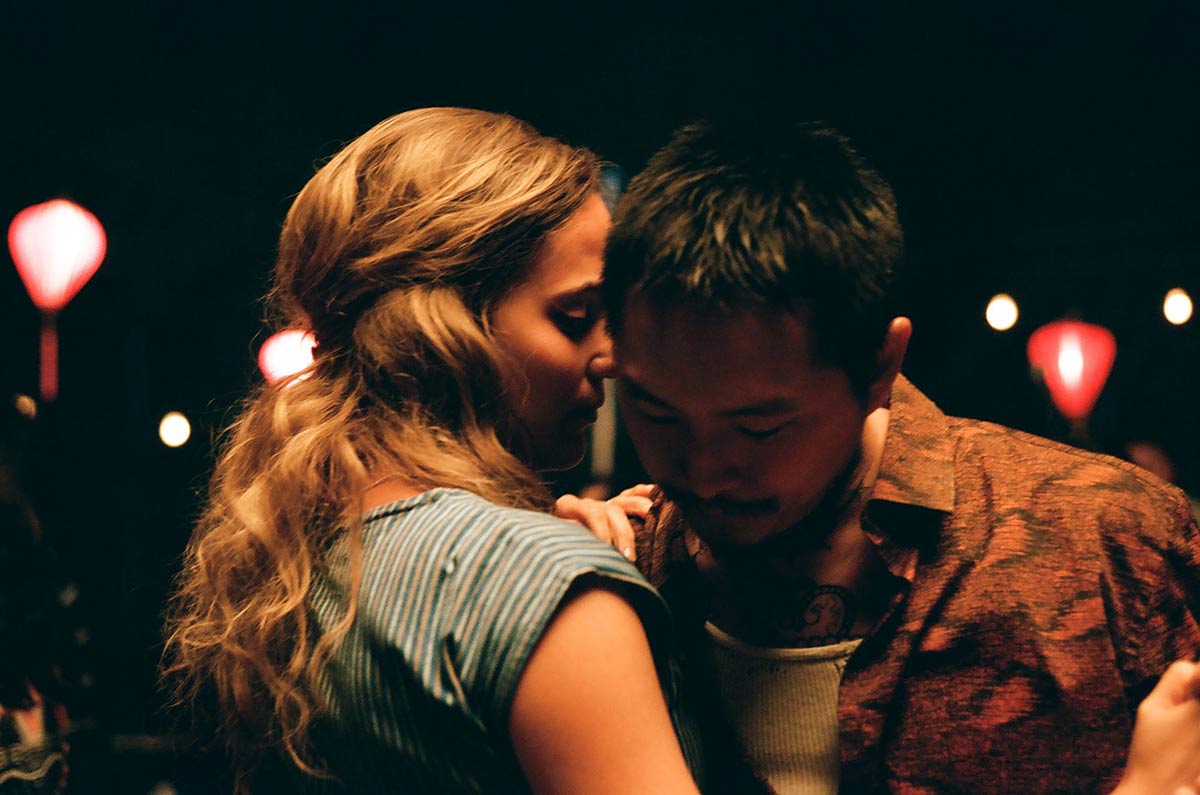“Where are you really from?” It’s an invasive question that’s awfully familiar to people of color, one that intrudes its way into our everyday lives. Though it can have innocent intentions, it’s often hostile and only works to invalidate our livelihood. You don’t really belong here, is the true meaning that lurks under that query. This is also the same question that’s asked of Antonio (Justin Chon) at the beginning of “Blue Bayou,” albeit in a different variation. (“Where are you from, like, born?”) And this pervasive origin story question will linger and turn over in the mind of many viewers throughout the film (as it did for me), which uses Antonio’s story to illustrate that no matter how long we reside somewhere, our right to live will always be interrogated and doubted.
READ MORE: Cannes Film Festival 2021 Preview: 25 Films To Watch
Asian-American stories are at the forefront of actor-turned-filmmaker Justin Chon’s work, from his Sundance award-winning, L.A. riots-centered debut “Gook” to family drama “Ms. Purple.” With “Blue Bayou,” Chon turns to the systemic as he uncovers the little-reported mass deportation of adoptees. As the closing titles inform us, tens of thousands of adoptees have been deported from the United States, thanks to an exploited loophole in a law that only protects children born after 1983. After an altercation with a police officer, Korean-American Antonio is at risk of becoming another addition to the long list, despite the fact that he was brought to the States at the age of three and has lived in Louisiana for over 30 years. “Blue Bayou” unfolds as a somewhat on-the-nose observation into this obscene phenomenon, as Antonio, his wife Kathy (Alicia Vikander), and his step-daughter navigate expensive meetings with lawyers and an impending court date.
READ MORE: Summer 2021 Preview: Over 50 Movies To Watch
As much as “Blue Bayou” becomes an “issue” movie, later on, the film truly soars when it focuses on the delicate friendship between Antonio and Parker (Linh Dan Pham), a soft-spoken Vietnamese refugee and cancer patient in her final days. While Antonio attempts to prove to the authorities that he’s authentically American, Parker is the one to help him feel Asian, which is all the more valuable considering he has spent most of his life in the custody of white foster parents.
READ MORE: The 100 Most Anticipated Films Of 2021
At a weekend cook-out hosted by Parker’s family, a young girl demonstrates to Antonio how to make a Vietnamese spring roll. It’s an uneventful scene, but an important one all the same. Because too often, one facet of Asian-American life is heralded as exemplary of the whole. But Asia is a giant continent, and no country’s culture mirrors that of another exactly. What Blue Bayou does wonderfully in these quiet moments is illustrate that being Asian is not a one-size-fits-all identity but a vast tapestry of different cultures. “Vietnam and Korea have a lot in common,” Parker’s father tells Antonio nevertheless. “We’ve both had wars. We have a lot of sad stories. But we’re here.” Despite our differences, we can also recognize the experiences and trauma we share, bridging our disparate lives together.
READ MORE: The 25 Best Films Of 2020 You Didn’t See
Chon films all these moments with such a transfixing beauty too. The Louisiana heat radiates through the screen as the camera catches droplets of sweat trickling down exhausted faces. And though it feels like the crew headed to the marshes at sunset to film a dozen takes of moody backlit shots at some point, you have to admit they do look damn good. The opening frame, in particular, of a woman in water surrounded by blood-red trees, feels like something straight out of Hokusai painting. A nighttime robbery filmed at a lower frame rate also evokes Wong Kar-wai’s preferred technique to slow down the mania of life. You can see his influence throughout, in the blinding neon signs of a tattoo parlor and the twinkling lights of New Orleans’ busy streets, and a passionate love that’s slowly fraying. Perhaps it’s not coincidental, then, that fallen angel Antonio’s vehicle of choice is a motorcycle.
Then it’s just a shame that the film loses itself in a disappointing final act that adds unnecessary curveballs and a dollop of melodrama, complete with weepy violins as an accompaniment.
Not helping in the least is the inclusion of a cartoonishly villainous cop (who sometimes likes to sip on a coconut for some reason) played by Emory Cohen. “Blue Bayou” could’ve been a film that deeply interrogates the ways the judicial system fails immigrants. But it’s so intent on personifying these structural issues that it sometimes forgoes addressing them altogether. Instead of exploring the heartlessness that is endemic in immigration policy, it sets up Cohen’s ruthless cop as the bad guy out to destroy Antonio’s life. Even worse is his partner and Kathy’s flaky ex, who gets a redemption arc. Anything but the redeemable cop.
“Blue Bayou” gradually becomes more and more overwrought, peaking with some teary screaming matches between Antonio and Kathy. (Vikander’s accent becomes less Southern the louder her voice gets.) And yet, I think fondly back to its moments of subtlety, as tranquil as the bayou. Parker remarks as she and Antonio sit on a dock at dusk that the fleur-de-lis is commonplace in both Vietnam and New Orleans. It’s her favorite flower because “water lilies look like they have no roots, but they do.” Humans are an adaptable bunch, but at some point, we plant ourselves where we feel, know, we belong. [B]
Follow along with our full coverage from the 2021 Cannes Film Festival here.





